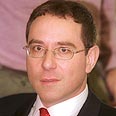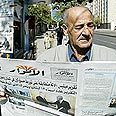

In the wake of the U.N. report on the killing of former Lebanese Prime Minister Rafik al-Hariri, ‘the rope is getting closer to President Bashar Assad, but he still has room for maneuver,” Zisser says. The evidence gathered so far is insufficient in order to bring Assad before an international tribunal, he says.
Meanwhile, recent reports show the U.S. has received an official Syrian pledge to hand over suspects whose names are designated by the investigative team. Some observers believe this may even assist Assad by removing some powerful officials around him, thus allowing him further establish his rule.
However, professor Zisser casts doubt on that possibility: “They are the pillars of the regime, and Shawkat is the number one man in the Syrian security establishment. He is not a person one sacrifices…Assad claims he didn’t know about the murder, which leaves us with two possibilities – he either lied, or he really didn’t know, and the truth is likely somewhere in the middle.”
U.S. needs China, Russia on board
According to Prof. Zisser, the immediate significance of the report depends on the person being asked. In any case, he says, one should not jump to conclusions because despite all the panic, there is still time left to make decisions and negotiate with the U.S., since U.N. Secretary-General Kofi Annan already declared that he would give the investigative committee a few more months to complete its work, in line with the committee's request before submitting the report.
Prof. Zisser says that "The report is more than a warning for Syria. It gives the U.S. and France some ammunition, but it is not the ax many expected. With this kind of report one cannot come to an international court, because Russia and China would not agree. If, nonetheless, the matter does reach an international court, Syria will only become more entangled and will face the choice to make a Libya-style deal. In any case, each one sees in the report what he wants to see - Syria's supporters claim that it is political and that Bashar was not mentioned in it, while Syria's opponents see it as proof to its involvement in the killing."
The Security Council will convene on Tuesday, and according to recent reports, two American proposals for decisions against Syria are pending. U.S. Secretary of State Condoleezza Rice already said this week that Washington has initiated a diplomatic move against Damascus.
"It all depends on how much the Russians and Chinese are willing to sweat for Assad, because without them the U.S. will not be able to lead a procedure of sanctions against Syria,” Zisser says.
“Currently, sanctions similar to those imposed on Libya would be significant and difficult move for Damascus, but for that Russia and China have to be convinced, and this would probably only be made possible if and when the final report that clearly points to Syria is submitted,” he says. “Right now, the report says there is cumulative circumstantial evidence and not more. However, in Lebanon, everywhere you dig you will find something."
‘It’s all up to U.S.’
So, what will happen in the next stage? In the meantime it seems the next step, as well as the fate of Damascus, will be determined - as was the case so far - in the U.S.
"The Americans have to make a strategic decision – whether they are in favor of bringing Bashar down or in favor of cutting a deal with him. Then there’s a tactical decision - whether to suffice with the existing report or wait for the final report. A final report could indeed uncover direct Syrian involvement and satisfy Russia and China. However, even then there would be enough room for a deal with Assad," Zisser says.
"Assad, on his part, has so far not shown that he is capable of reading the map and has not indicated that he is ready for a deal. However, when a regime has to survive it is willing to pay a heavy price, and therefore this should not be rejected out of hand. In any case, we must wait and see what the U.S. will do in the Security Council and what decision it will make regarding its conduct opposite Syria," he adds.
As to the Israeli angle, Elias Murad, editor-in-chief of the Syrian newspaper al-Baath, already cast a heavy doubt in an interview to al-Jazeera regarding the witnesses questioned by the committee (approximately 400) and charged that some of them might be Israeli.
"Israel has not been mentioned so far, and that’s for the best. No one has an interest for us to be involved, maybe apart from Hizbullah," Prof. Zisser concludes.















